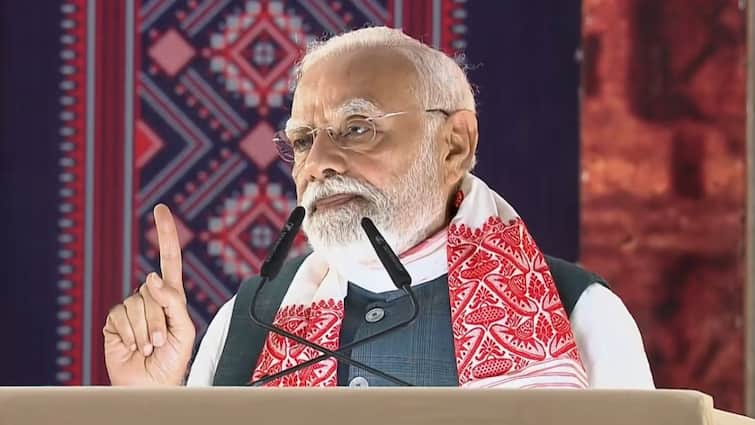Prime Minister Narendra Modi on Sunday inaugurated India’s first second-generation bamboo-based ethanol plant at Numaligarh in Assam, underlining its potential to transform the region’s economy and energy security. He also highlighted that the BJP-led Union government is taking steps to reduce imports of crude oil and gas, focusing more on exploration of fossil fuels and green energy.
Highlighting India’s rapid shift towards green energy, he said, “A decade ago, India lagged far behind in solar power, but today, in the field of solar energy, India has risen to the top five countries in the world. In these changing times, India needs alternative fuels in place of oil and gas. One such alternative is ethanol.”
The ₹5,000 crore Numaligarh Refinery Limited (NRL) project is the world’s first unit to convert bamboo into ethanol. The refinery is also designed as a zero-waste facility, producing high-value chemicals such as green furfural, green acetic acid, bio-coal, food-grade carbon dioxide, and 25 MW of renewable electricity.
‘Congress Sent People To Jail For Cutting Bamboo’: PM Modi
In his address, the Prime Minister accused the Congress of neglecting Assam’s natural wealth, pointing to a past ban on bamboo cutting.
“Today we are producing ethanol from bamboo, but you must not forget the time when the Congress government would send people to jail for cutting bamboo. Bamboo, which has always been an integral part of the daily lives of our tribal communities, was banned from being cut. Our government removed the ban on bamboo cutting, and today this decision is greatly benefiting the people of the Northeast,” he said.
Modi also announced that the government would support farmers in bamboo cultivation and assured procurement for the plant. “Every year, about ₹200 crore will be spent in this area. Thousands of people here will benefit from this one plant,” he added.
PM Modi Stresses Assam’s Role In India’s Energy Future
PM Modi used the occasion to stress Assam’s importance in powering India’s growth. “Assam is the land that strengthens India’s energy potential. The petroleum products that emerge from here fuel the nation’s development. The BJP-NDA government is committed to taking this strength of Assam to new heights,” he said.
He also referred to the government’s ‘National Deep-Water Exploration Mission’ to tap potential oil and gas reserves from the seas, and flagged the Semiconductor Mission with Assam as a hub. Modi inaugurated a ₹7,000 crore polypropylene plant alongside the ethanol facility, aimed at reducing India’s dependence on imports by 20 per cent.
Union Petroleum Minister Hardeep Singh Puri wrote on X a day earlier that both projects, worth more than ₹12,000 crore, placed Assam and the North-East “at the centre of the global green energy and petrochemical landscape” and reflected the Prime Minister’s “love and dedication for the people of Assam.”
Ethanol Blending Debate
While the government has advanced its target for 20 per cent ethanol blending in petrol (E20) from 2030 to 2025—and claims to have already achieved it in the current ethanol supply year—the policy has stirred controversy.
Vehicle owners and critics argue that older vehicles, particularly two-wheelers and cars manufactured before 2023, were not designed for high ethanol blends. Concerns raised include engine damage, reduced mileage, and corrosion of components. There are also apprehensions about the cost of retrofitting vehicles, with the burden falling hardest on lower-income consumers.
Another contentious issue is the diversion of food grains like rice and maize for ethanol production, fuelling a “food versus fuel” debate in a country where malnutrition remains a challenge. Water use for crops such as sugarcane and maize has also been criticised.
Defending the policy, Union Road Transport Minister Nitin Gadkari dismissed the backlash as a “paid” and “politically motivated” campaign by what he called the “petrol lobby.”



